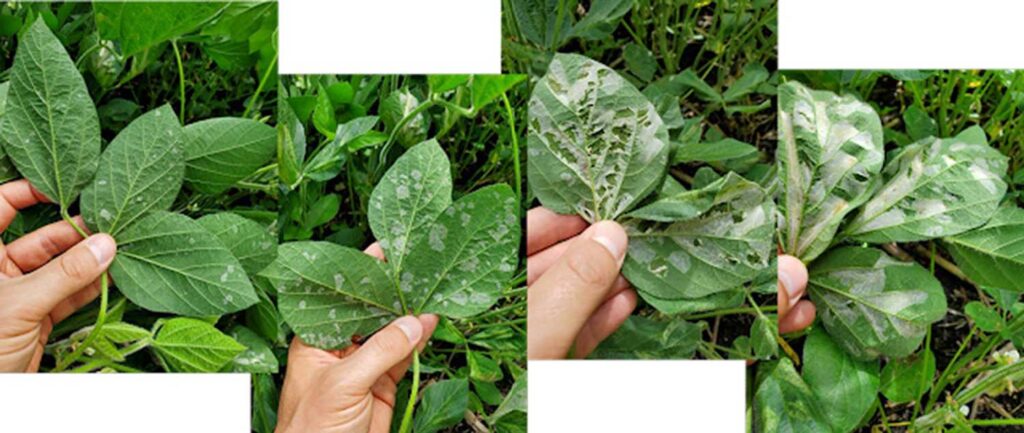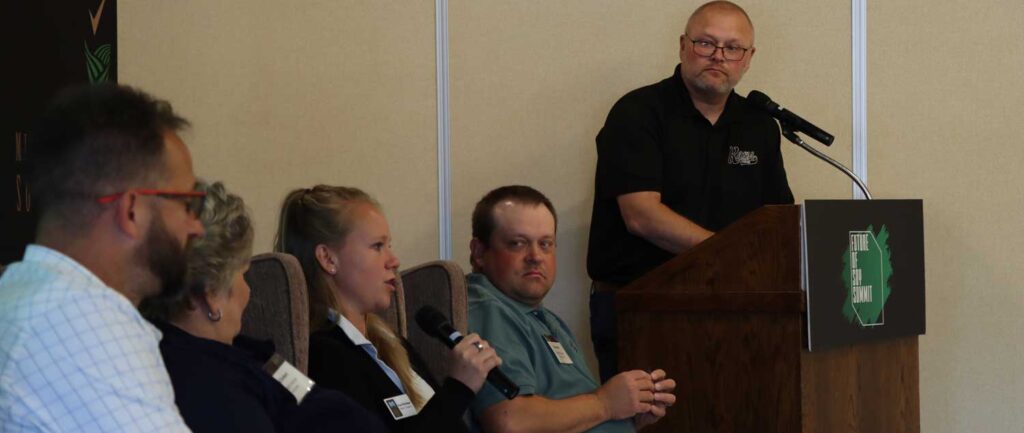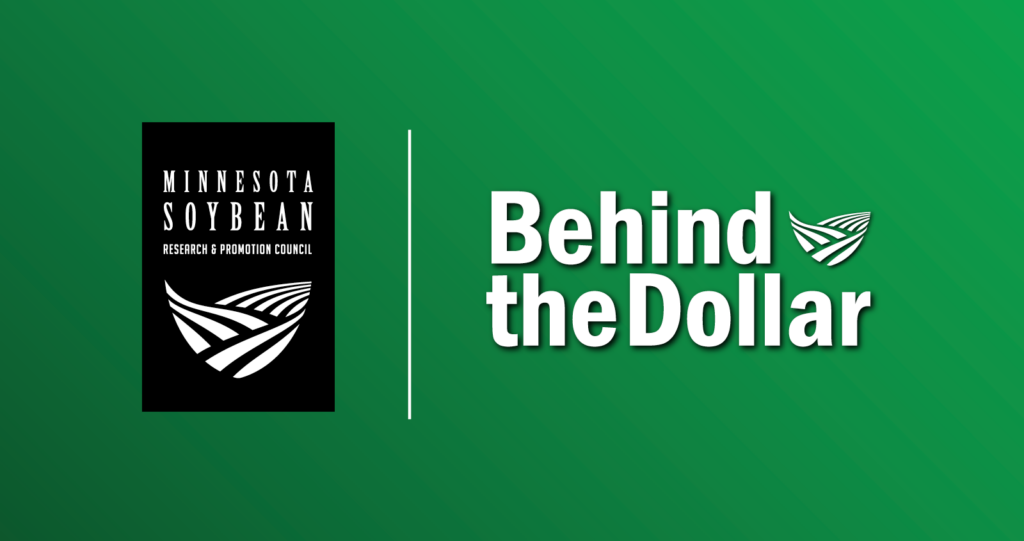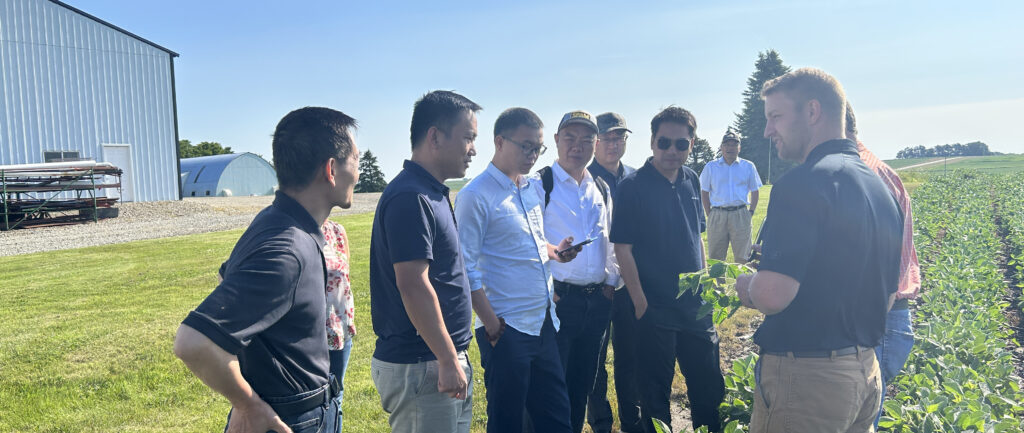Minnesota Soybean Research & Promotion Council (MSR&PC) Director Keith Schrader hosted a Polish trade team last week on his farm near Nerstrand, Minn. The group was specifically interested in dairy livestock feed ingredients.
“We had the largest soybean crop we have very produced last year,” said Schrader, who recently completed his term as MSR&PC chairman. “We contribute a lot of that to ideal weather, a solid fertilization program and targeted fungicide application.”
The conversation centered on the use of genetically engineered seed and the benefits farmers in the United States receive from those crops. In Poland, it is illegal to plant genetically modified seed, but farmers can use genetically modified varieties in livestock feed.
“This group was interesting. They were farmers buying soybean meal because they don’t raise it,” Schrader says. “They had a lot of agronomic questions, which I enjoyed.”
The Schraders focus on a strategic fertilizer plan for their acreage. Kurt Schrader, Keith’s son and partner in the farming operation, explained that every three to four years, each acre they plant is touched by either swine or turkey manure fertilizer. The Schraders also complete a split nitrogen application on their corn acres.
“I enjoy hosting trade teams because it really strengthens the partnership between the farmer and the end user in another part of the world,” Kurt Schrader said.
The trade team visited Minnesota through a partnership with Ag Processing, Inc. (AGP). The plant in Dawson, Minn., specializes in Aminoplus®, a high performance soy feed for dairy cattle.
“We really want to support the efforts at the Dawson plant. This visit and the partnership is one way to ensure our customers are comfortable with the product they are buying,” Schrader said.







